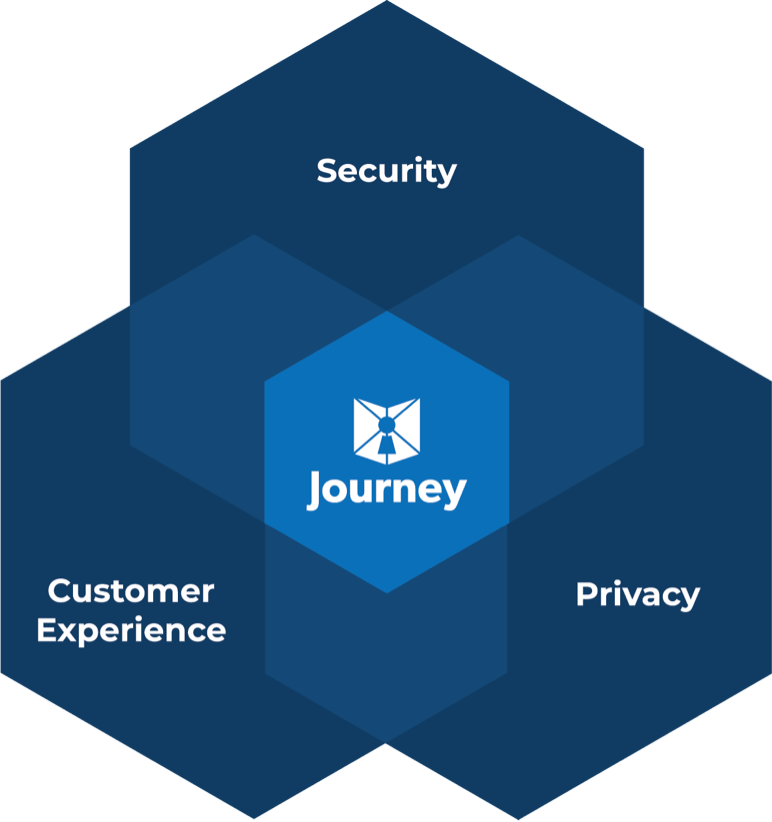We all joke that it’s a wise idea to stay away from politics and religion in most conversations unless you’re pretty sure of how that’s going to work out, so let me offer up another topic you can spring on people if conversation lags: ask them about the weirdest or most frustrating “identity verification” process they’ve been through.
My mother was irked recently when an agent asked her who her favorite movie star is. She doesn’t even know, so how in the world would an agent be able to verify her identity on that? I had an exasperating interaction trying to buy international flights for my entire family (pre-COVID, obviously) when after an hour of setting everything up, my credit card rejected the payment, because it was mistakenly flagged as fraudulent. Grrr.
The point is, everyone has a story here and it’s guaranteed to keep a conversation going. Why do we put up with this? Everyone hates it, but we all live with it, because there really hasn’t been an alternative. And it can’t be just the callers that loathe it.
You’ve got to believe that agents hate it too, and that it drives Contact Center leaders nuts because it puts a damper on their efficiency, cost, CSAT and security KPIs.
Bottom line: The traditional way we’ve established identity is broken.
Nearly 90% of call centers still use Knowledge-Based-Authentication (KBA). Those silly questions about your first dog’s name and your favorite ice cream flavor, or even something like an order or account number.
Less than 10% of KBA contact centers are confident in accuracy. Which makes sense, because 60% of fraudsters pass KBA in targeted attacks.
On average, authenticating a caller takes about 45-90 seconds. 3rd party KBA services can add over $1/call, which can go much, much higher when 3rd party databases are used. While you’re adding up those costs, remember those types of solutions alone are ineffective at thwarting fraud.
The attack surface is larger than ever during the current COVID-19 pandemic. The risk of regulatory compliance issues is compounded with more and more agents working from their homes.
Cost of Fraud is on the Rise
Over half of companies surveyed experienced an insider attack in the last 12 months.
Fraud costs are growing at a double-digit pace year over year and are nearing 2% of revenue.
39% of retail fraud losses are attributable to identity theft.
The Regulatory Environment is Just Getting Tougher
Security and Privacy compliance is costly. Depending on your industry, you may be subject to many or all of these: HIPAA, PCI, TCPA, GDPR, CCPA, and likely, many more in the future.
A typical company will spend over $100,000 to address a regulatory compliance event.
With strict enforcement and fines growing, costs to comply are increasing.
Customer Experience Matters
30% of valid customers, the real people you want to talk to, fail KBA processes.
Over 50% of customers believe the authentication process takes too long.
In 2019 over 50% of mobile calls were fraud, helping drive outbound connect rates below 15% and right party connect below 5%.
An Unappealing Tradeoff
A great customer experience is essential. Security is essential. Compliance is essential. Protecting your customers’ privacy is essential. None more important than the others. At the same time, every business finds it imperative to drive cost out of operations.
Today’s solutions force contact center leaders to make a choice: Ultra-secure identity vs. friction for the customer vs. smoother, cost-efficient contact center operations.
The good news is that Journey and Eventus have a solution that makes that choice obsolete. Now your organization can have 1:million veracity, military-grade security and an elegant and fast authentication experience. No more silly questions and almost instant mutual trust between you and your customers so you can get down to business.
Security, Privacy, and Customer Experience with No Tradeoffs
Journey is a security company founded by industry veterans from the communication industry whose mission is to help enterprises transform their customer relationships based on verified identity as the root of trust. To do that, we have fundamentally re-imagined the challenge of digital identity. We have addressed it as an entire system from every angle and touchpoint. From the network up to the device in the consumer’s hand to the customer-facing representative at your business.
Journey’s approach eliminates annoying questions, passwords, checking your email for 6 digit pins, etc. using a totally different approach to verifying identity that involves what we’ve coined the “Zero Knowledge Network”. It protects privacy in an ultra-secure fashion, establishing trusted identity to a high degree of confidence (up to 1:billion) in mere seconds. That delivers great benefits for both enterprises and customers alike.
The Power of Zero Knowledge
To the uninitiated, Zero Knowledge sounds like it might not be a great thing, but in the world of cryptography and security, it’s an incredibly powerful tool that can be leveraged to solve a large number of business and security challenges without putting customer data at risk. Journey’s Zero Knowledge Network is based on a cryptography concept called the “Zero Knowledge Proof” which proves a fact is true without showing sensitive information.
Journey has brought this powerful cryptography tool to the world of communications to transform how businesses interact and transact with customers securely and privately, with an easy and elegant customer experience.
Seeing is Believing
Unless you’re a cryptography enthusiast, it can be hard to imagine what Zero Knowledge actually IS. So if you’ve got five minutes, take a look at this video that will show you what the future of identity verification looks like. It’s fun! Promise.




